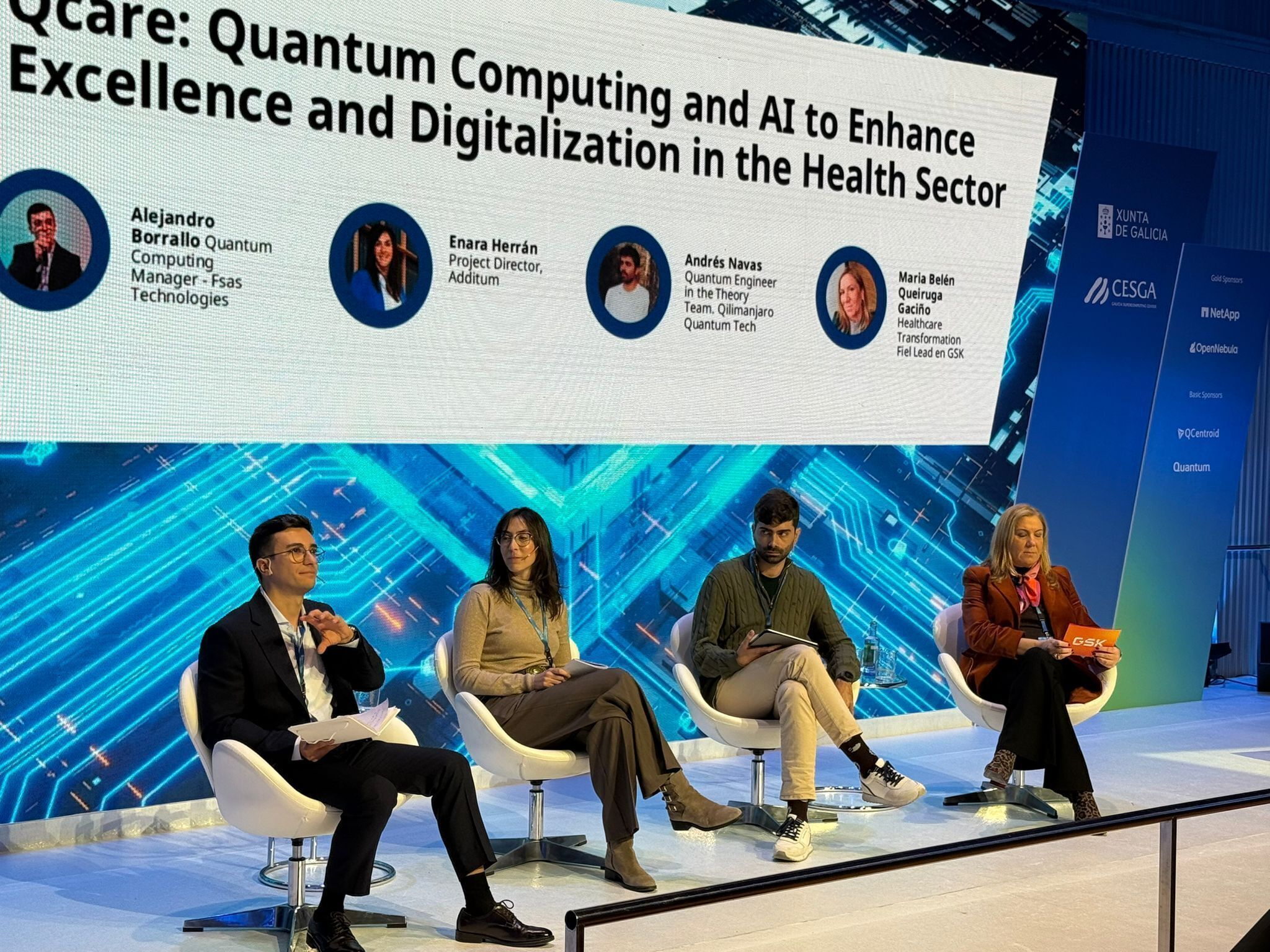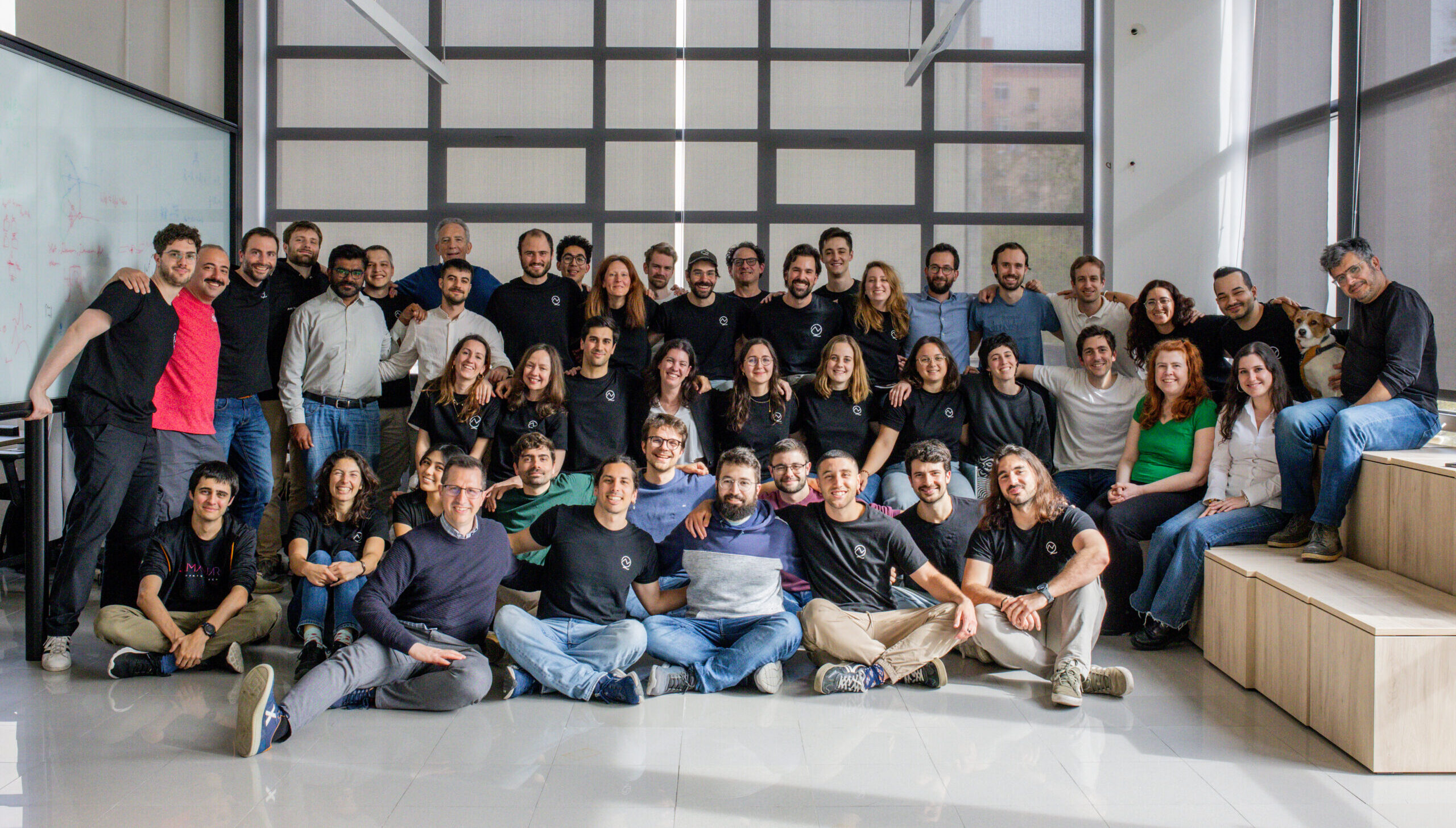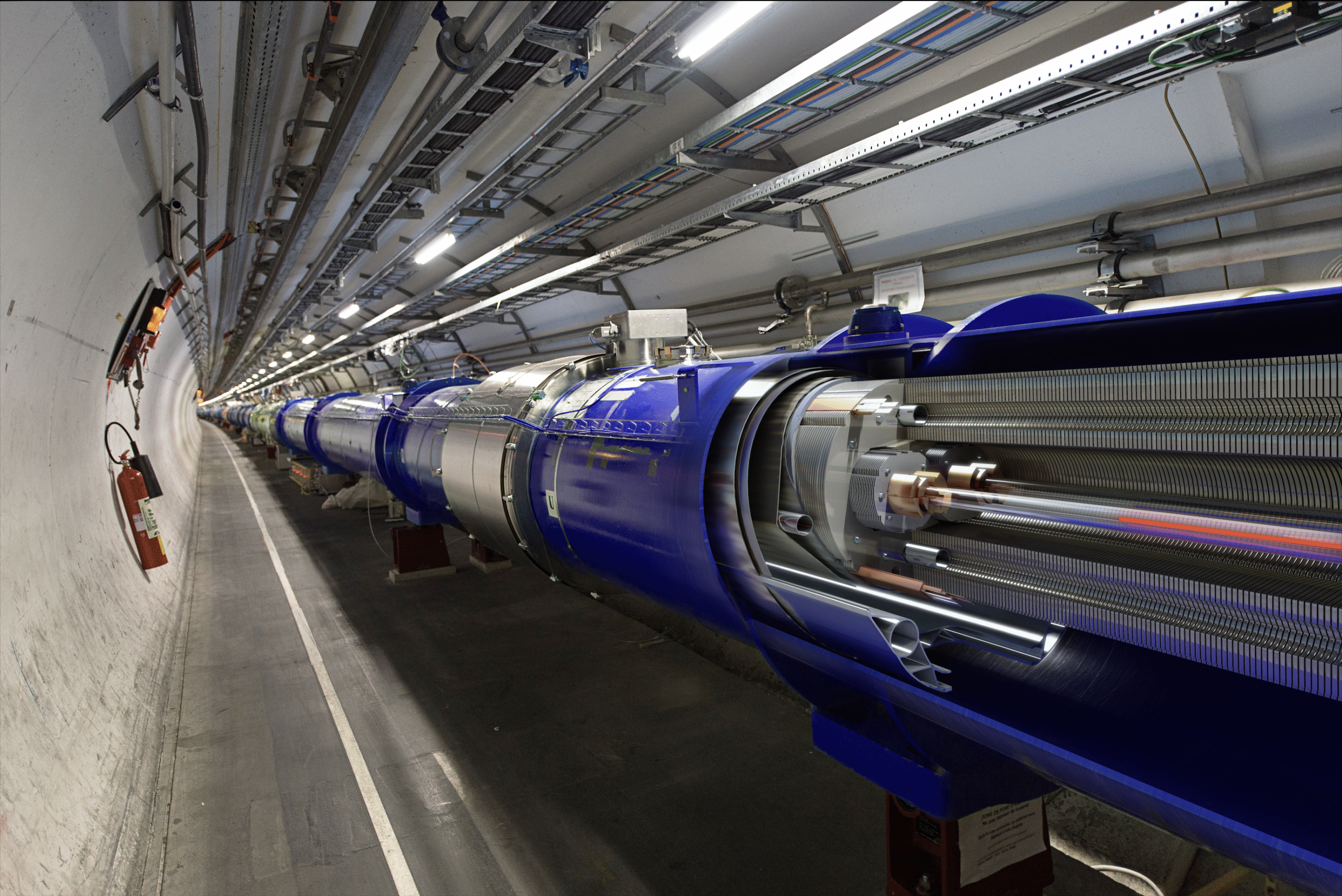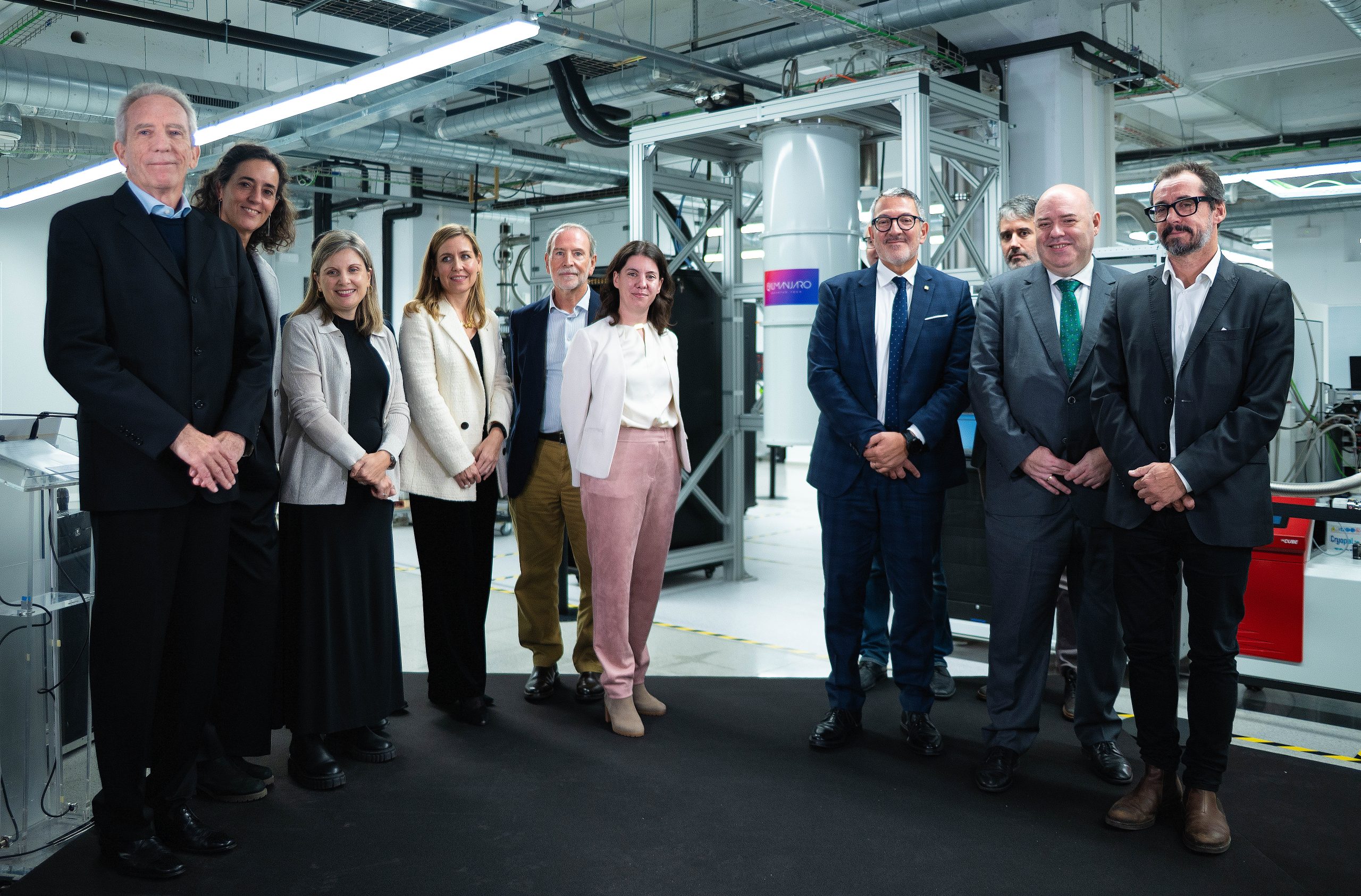This year, Qilimanjaro was physically present at the APSphysics March Meeting in Chicago (March 14-18). Our co-founder and chief software architect Artur-Garcia Sáez and two PhD students, Ana Palacios and Matthias Werner, have been in the city attending the conference. The two Phd students presented their work on March 15, alongside another PhD student, Jordi Riu, who presented his work virtually.
Ana Palacios, is a first year PhD student at University of Barcelona, developing techniques to aid in the process of adiabatic quantum computation, as well as new encodings of problems within the framework of annealing that make explicit use of entanglement. At this year’s March Meeting Ana presented a talk with the title “Steered quantum annealing: improving time efficiency with partial information” at the session F38: Quantum Annealing and Optimization I. This work, prepared in collaboration with her PhD coordinators, Marta P. Estarellas and Artur Garcia Sáez, treated “steered quantum annealing as a new method to enlarge the gap throughout the process, in the case of diagonal final Hamiltonians, based on the exploitation of some assumptions made about the particular problem instance”. In order to introduce this information, the authors propose beginning the anneal from a biased Hamiltonian that incorporates reliable assumptions about the final ground state. The simulations show that this method yields a larger average gap throughout the whole computation, which further highlights the increase in robustness of the latter.

Jordi Riu, a second year PhD student as well, at the Universitat Politècnica de Catalunya, studies the capabilities of quantum computation to tackle classical optimization problems, with specific focus on those that arise from large-scale real-world logistics challenges. Jordi presented his work online this year, developed in collaboration with his PhD supervisor Artur Garcia Sáez: “Reinforcement Learning strategies for Quantum Optimization Algorithms” at the G38: Quantum Annealing and Optimization II session. The work presented represents a strategy based on classical control of Quantum devices using Reinforcement Learning and applied to Quantum algorithms designed for classical optimization problems such as the QAOA and Quantum Annealing.

Matthias Werner is also a first year PhD student at University of Barcelona, interested in the intersection of machine learning and quantum computation, which includes variational quantum algorithms, quantum machine learning and classical machine learning applied in quantum technology. He presented at the March Meeting the work titled “The power of density: Suppression of quantum phase transitions via dense driver Hamiltonians in adiabatic quantum computation” written in collaboration with his PhD supervisors, Marta P. Estarellas and Artur Garcia Sáez. The work presented in the session K38: Quantum Annealing and Optimization III. This talk refers to the conditions under which localisation causes first order QPTs. As a consequence of this analysis and using methods from spectral graph theory, were examined both analytically and numerically the role of the connectivity of the driver Hamiltonian in the mitigation of such effects in different AQC algorithms and show that in the limiting case of full connectivity first order QPTs due to localisation are avoided entirely.

This year’s March Meeting brought together the presentation of more than 10,000 technical papers covering around 45 topics. Our focus, with our PhD students, has been the sessions on Quantum Annealing and Optimization I, II, III.
It has been a resourceful event for Qilimanjaro PhD students, with the great opportunity to showcase their work and also to participate in the various networking events, information booths and journal events.





